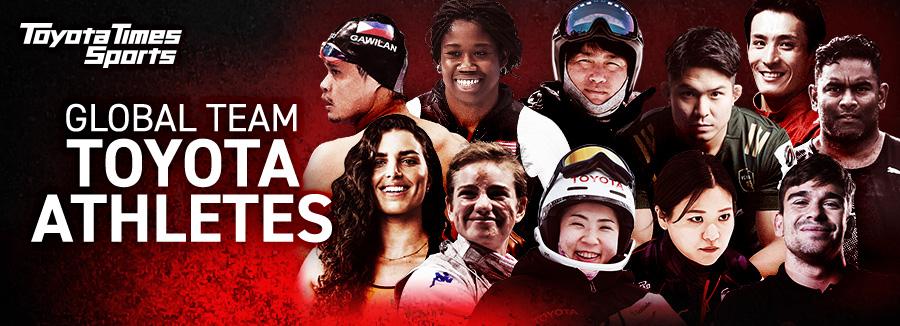At Toyota, we believe when people are free to move, anything is possible, and we are committed to advancing mobility for all. Movement is also at the heart of sport, and since our founding we have celebrated and promoted this meaningful connection. We also think that sports has the ability to build team spirit, boost the motivation of both athletes and spectators, develop better business people, and support local communities. Through sports, our employees develop a spirited mentality capable of overcoming difficult challenges, by building a competitive approach into work practices.
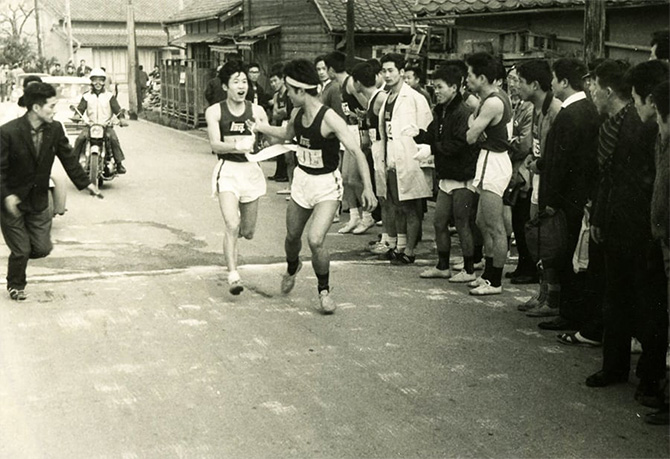
Track and field club from early days
That spirit was present from the very early days of Toyota and drove company founder Kiichiro Toyoda to organize the company's first sports club, the track and field club, the same year as the company's founding in 1937. Since then, Toyota and its sports teams have grown and developed together.
"Since the company was founded, Toyota has experienced various difficulties," explains Toyota President and CEO Akio Toyoda. "And whenever we went through times of trouble, sports have always been there to encourage us. The two teams, the auto company and the sports team, have always been inseparable; they always pushed each other to continue, as their paths overlapped."
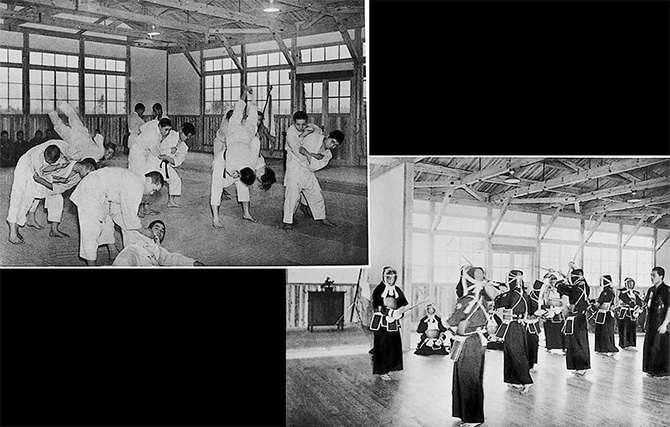
Toyota's Judo and Kendo club
In 1938, a Judo club was created. As the years went on, Toyota added more sports clubs to its roster, notably a soccer club in 1939 and rugby in 1941.
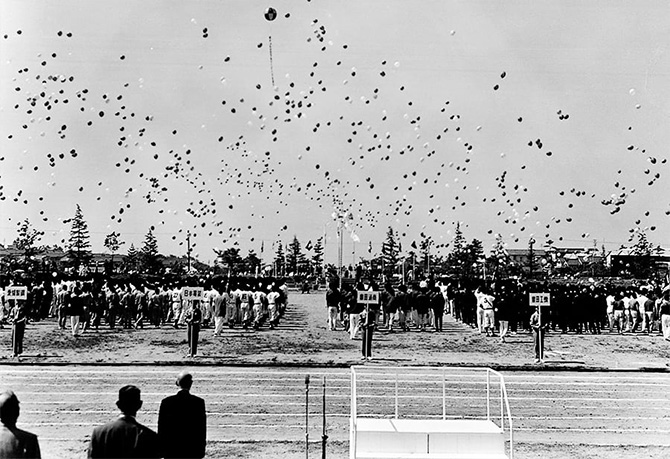
All-Toyota Games back in May, 1965
A decade later, we held our first-ever "All-Toyota Games," an event where Toyota affiliates competed with other Toyota affiliates through various athletic activities.
Then, in 1964, Tokyo hosted the Olympic and Paralympic Games, a proud moment for the country that led to increased popularity of corporate sports leagues and teams in Japan. Around this time, Toyota helped establish a corporate-backed sports league, called the Japan League, to allow companies from across the country to come together in friendly competition. This not only helped build solidarity among Toyota's employees, but also helped bring the economic industry together in Japan. It was also around this time that Toyota started to open and operate overseas, leading to a growing international view of the world, including sport activities.
As honorary chairman of Toyota, Fujio Cho once explained: "As globalization, diversification and other environmental changes continue to rapidly alter our world, we believe that participation in sports is extremely important as a way to promote harmony and understanding globally. Sports bring us together and push us to challenge ourselves every day, as we continuously reach and set new goals."
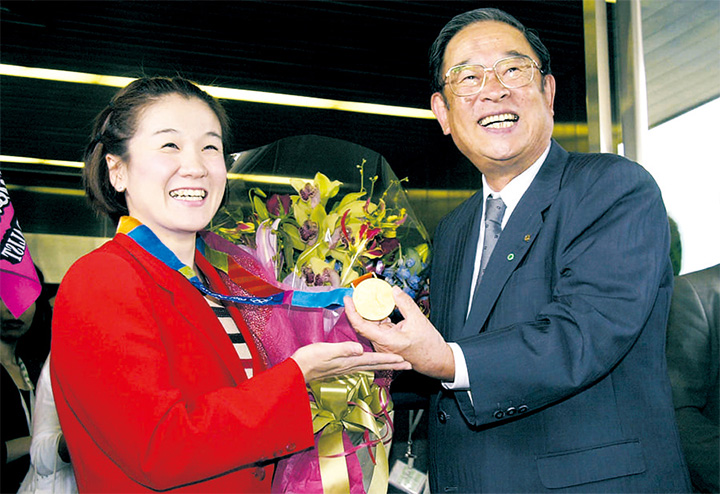
Former president Cho with Judo gold medalist Ryoko Tani, Toyota employee at that time
By 1974, Toyota had as many as 35 different sports clubs, divided among its primary working locations in Japan. For example, the Tokyo office had basketball, while track and field was in Tahara; at the Higashi Fuji technical center, it was soccer. These various locations (and others) had athletes that participated regularly in world-wide competitions. Sports had taken a prominent position in the minds of our employees. Internationally, Toyota made the decision to start sponsoring the "Toyota Europe/South America Cup" (Intercontinental Cup), in 1984.
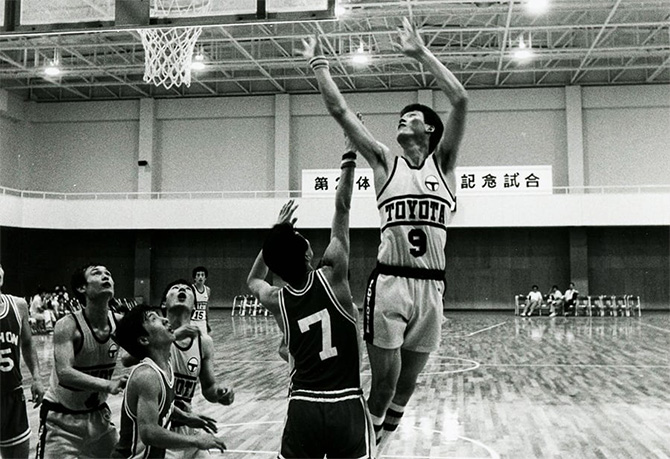
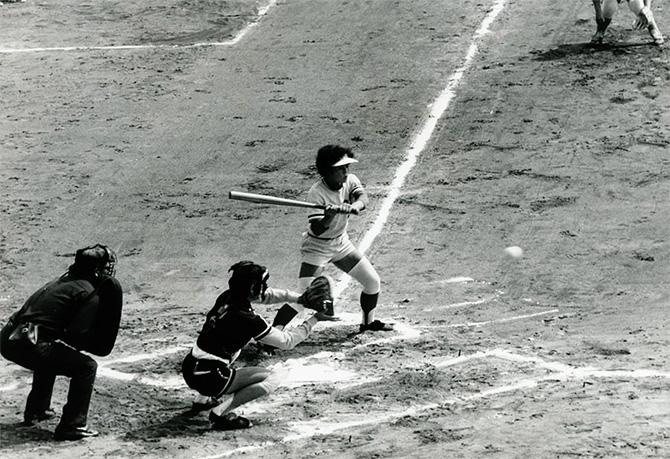

Toyota's company basketball, baseball and soccer team
From the 1990s, some of Toyota's athletes even turned professional, including those participating in its basketball and soccer teams. We also understood the need to continue to diversify, contracting with foreign athletes, and focusing in on eight specific sports in the 2000s, adding short-track speed skating and beach volleyball to a list that included men and women's basketball, rugby, baseball, women's softball, and long-distance running.
Meanwhile, the Intercontinental Cup sponsorship started in 1984 continued until 2004, when the name changed to "FIFA Club World Cup" in 2005. Toyota became a presenting sponsor, so the name changed again to "Toyota presents FIFA Club World Cup" until the sponsorship term ended in 2014.
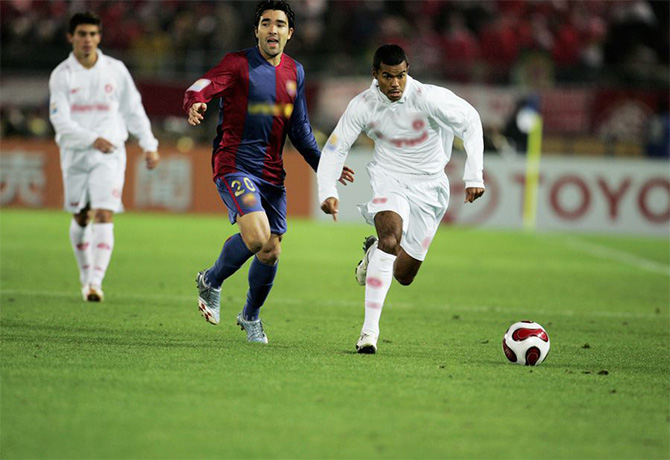
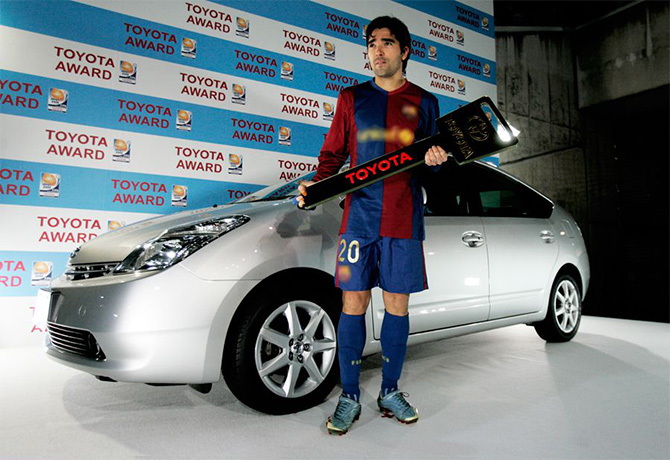
FIFA Club World Cup in Dec, 2004
It was around this time that the Olympic and Paralympic spirit had spread to Toyota. In 2015, Toyota showed its continued long-term commitment to global sports as we signed on to become the official worldwide mobility partner of the International Olympic and Paralympic Committees for the 2017-2024 period, covering the Winter Games of PyeongChang 2018 (Korea) and Beijing 2022 (China) and the Summer Games of Tokyo 2020 (Japan) and Paris 2024 (France).
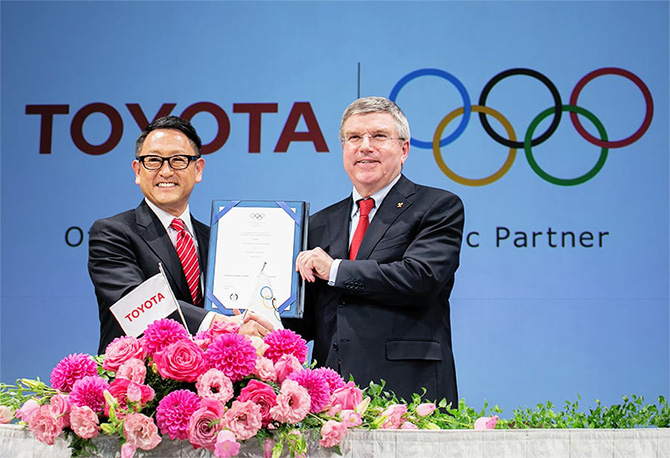
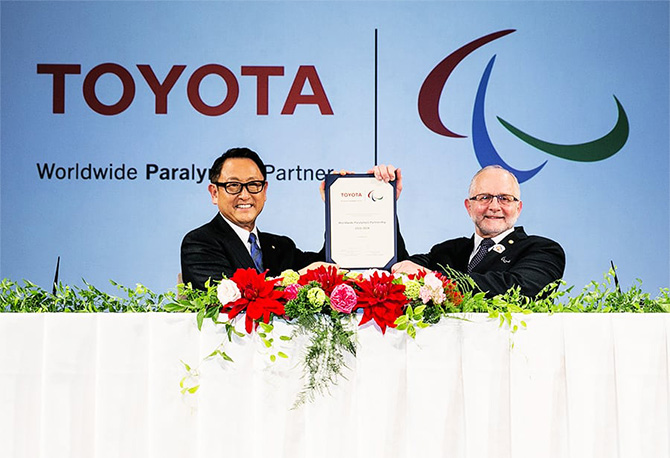
Toyota signing worldwide partnership with IOC, IPC
Today, Toyota manages seven competitive sports clubs in Japan―beach volleyball, baseball, women’s softball, long-distance running, men’s basketball, women’s basketball, and rugby―as well as 26 non-competitive sports clubs including the Cheer Squad, many of which have been in existence for decades. We also employ many athletes, para athletes, and others with high interest in sports.
We are extremely proud of the Toyota team members that, over the years, have competed in international sporting events, including the Olympic and Paralympic Games. Keita Sato and Hajimu Ashida won bronze medals at the Rio 2016 Paralympic Summer Games in the 400m relay, and Taiki Morii won silver and bronze medals in chair-ski events at the Vancouver 2010 and Sochi 2014 Paralympic Winter Games.
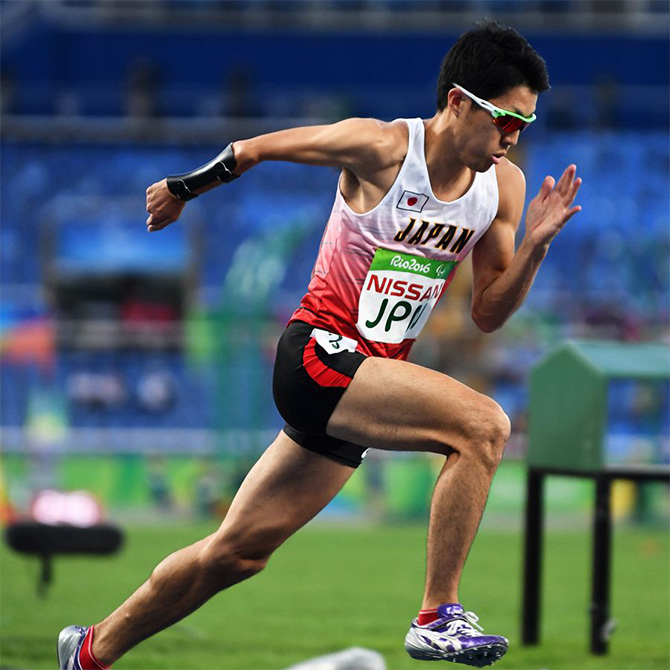
Hajimu Ashida
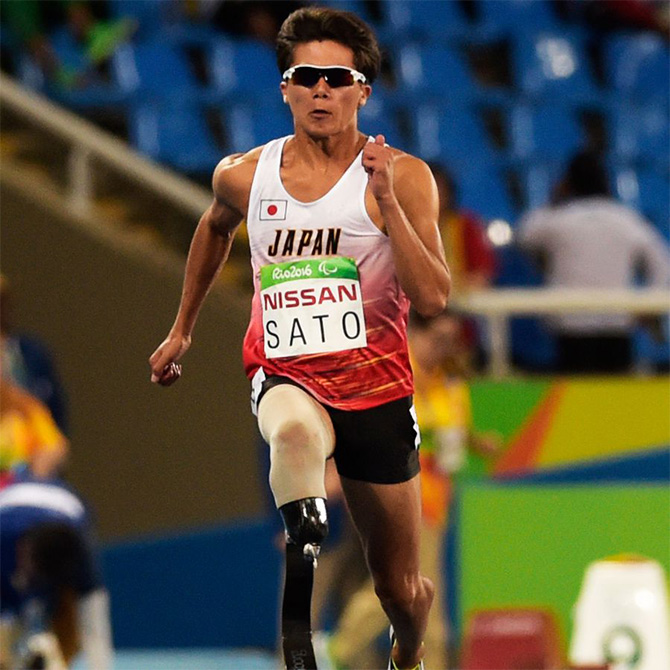
Keita Sato
In fact, at PyeongChang 2018, Toyota and its affiliates supported more than 50 athletes from 20 countries to form Team Toyota. The company also provided technical- and equipment-related support for Taiki Morii (Para ski) and fellow Para athlete Andrea Eskau (Germany―ski sled) during the Games. Toyota is committed to using its advanced technology know-how and its dialogue with Para athletes to enhance Para sports and allow athletes to compete at the highest levels in their events.
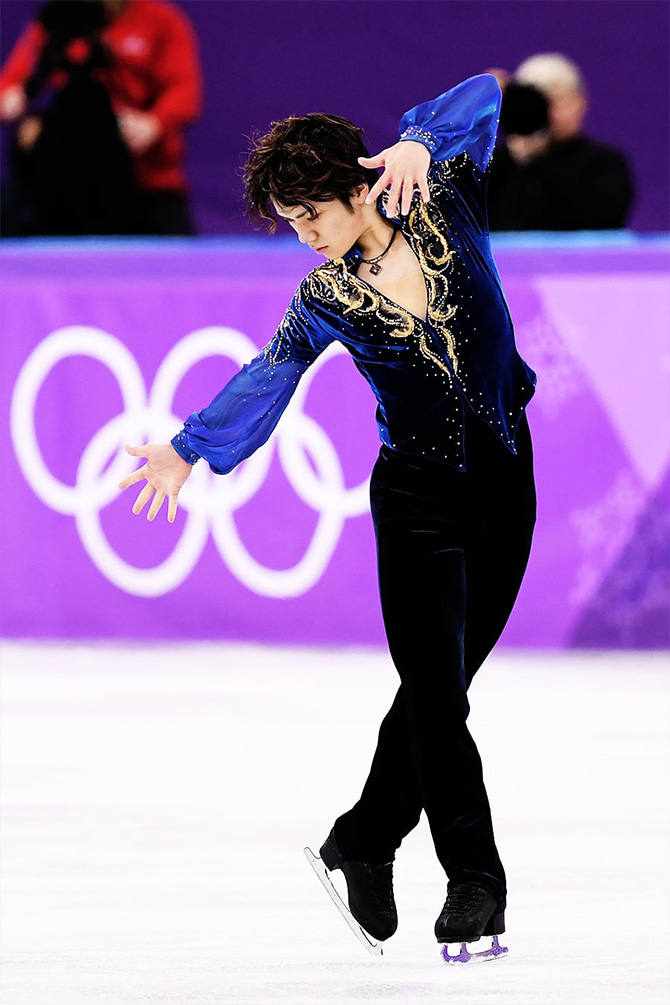
Shoma Uno
(Atsushi Tomura /
Getty Images for
Toyota Motor Corporation)
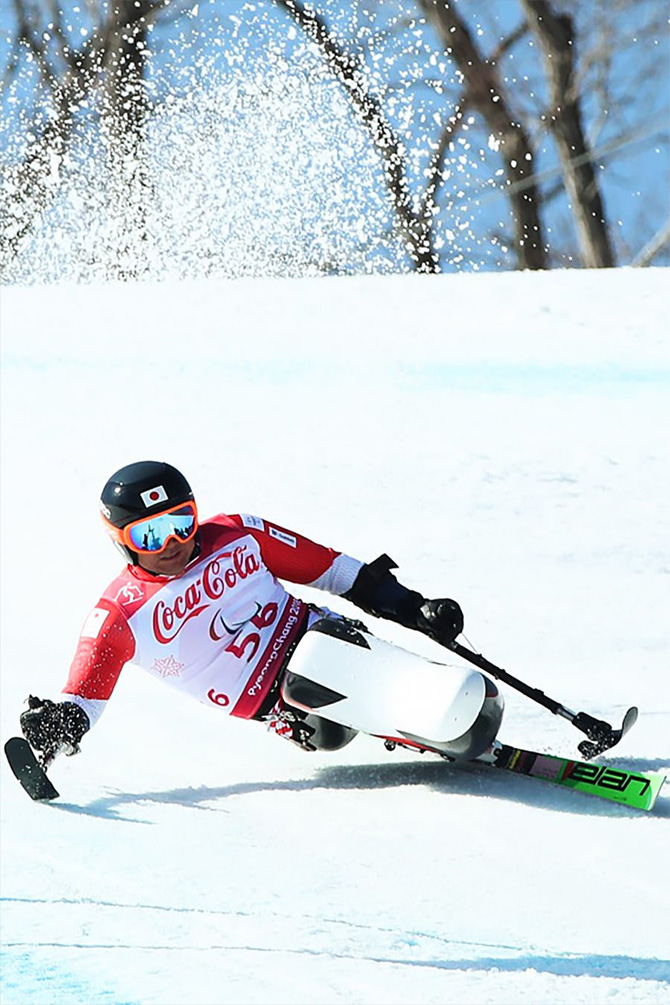
Taiki Morii
(Lingtao Zhang / Getty Images)
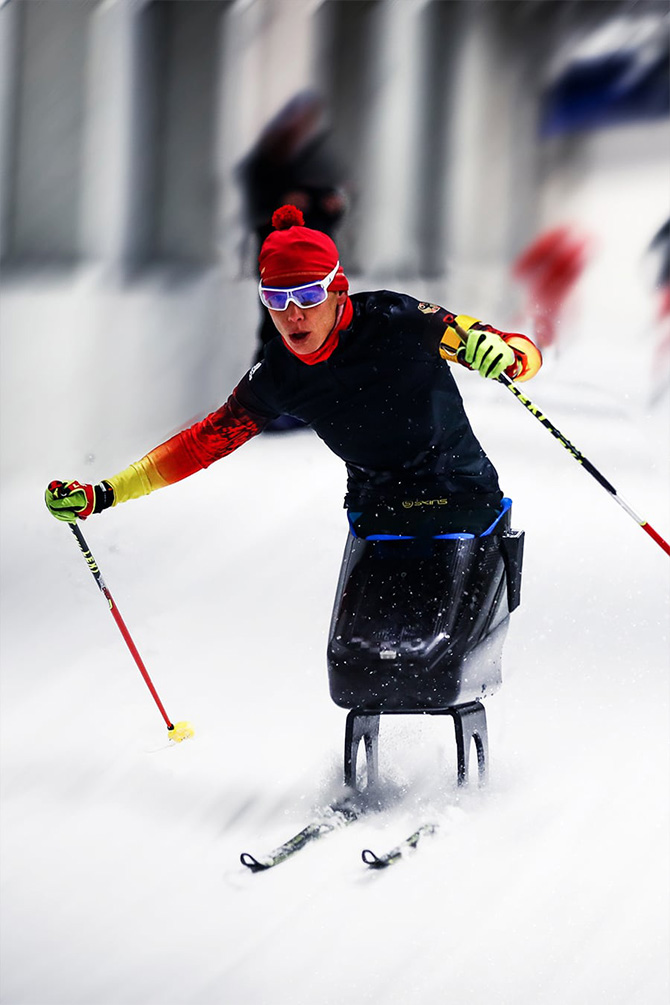
Andrea Eskau
We also believe that sports aren't only about competition, but first and foremost about bringing people together. In this spirit, we've worked with local chapters of the Special Olympics over the years, and in 2017, we extended our partnership to become an official global partner. We see the opportunity to work with Special Olympics and our participation in Unified Sports, which joins people with and without intellectual disabilities on the same team, as a way to expand our own view of the world, and make a more inclusive, harmonious society.
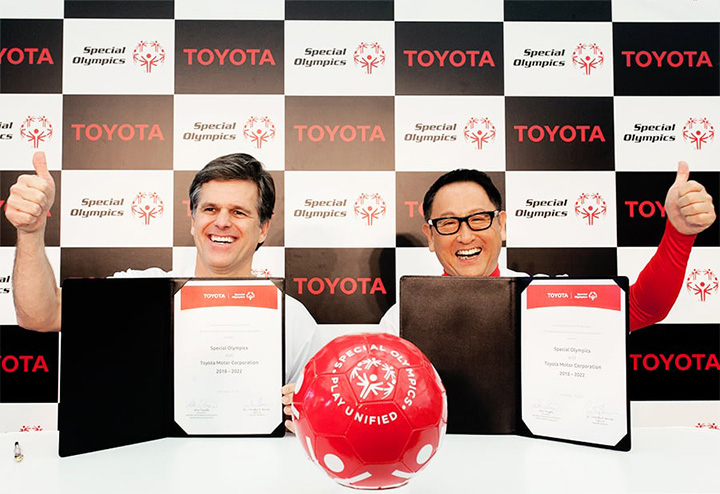
Toyota signing worldwide partnership
with Special Olympics
We are proud that no matter the market conditions or the broader challenges our business has faced, we've remained committed to keeping our internal sports teams and continued to recognize sport as a way of bringing people together.
Every day, across the globe, athletes demonstrate the values of humility, hard work, determination and perseverance. It is our admiration for these values that continues to drive us to support the creation of a more inclusive and sustainable society in which all people can start their impossible.

